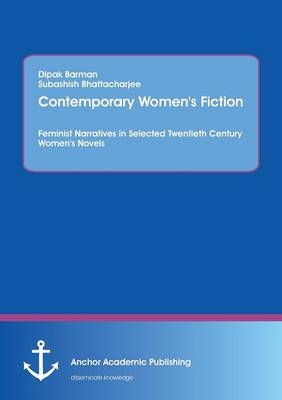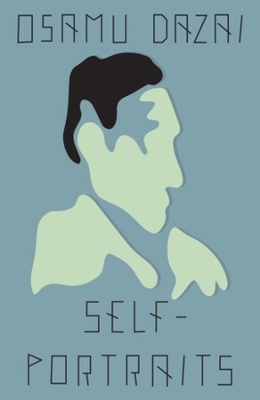
Contemporary Women's Fiction
Anchor Academic Publishing (Verlag)
978-3-96067-027-8 (ISBN)
Subashish Bhattacharjee is a UGC-Research Fellow and Teaching Assistant at the Department of English, University of North Bengal, India. He is also Visiting Faculty at Cooch Behar Panchanan Barma University and University of North Bengal, Jalpaiguri Campus. He has numerous publications to his credit. He is also the founder and Editor of The Apollonian: A Journal of Interdisciplinary Studies.
Dipak Barman is a Research Scholar at the Department of English, University of North Bengal, India. He has formerly been a Guest Faculty at ABN Seal College, University of North Bengal. He has published several articles in reputed journals and edited books, and presented papers in seminars.
'Text sample:
Chapter 3. TONI MORRISON'S THE BLUEST EYE:
READING RELIGION, ETHICS AND AESTHETICS OF THE AFRICAN-AMERICAN WOMAN:
Whether we generalise or codify Toni Morrison's writing as African-American women's fiction or feminist fiction or postmodern fiction, it remains a 'generic' ambiguity. Rather than such definitive signifiers, Toni Morrison's oeuvre of fiction is quite possibly best summed up in her own words, when she tells an interviewer:"I write for black women. We are not addressing the men, as some white female writers do. We are not attacking each other, as both black and white men do. Black women writers look at things in an unforgiving loving way. They are writing to repossess, rename, reown".
This repossession and renaming is a process that becomes Morrison in a like manner as Alice Walker, Maya Angelou, Gloria Naylor or Toni Cade Bambara-enacting this identity is Morrison's fiction, as reformative and not static, or, to borrow from the French philosopher, Gilles Deleuze, active, not reactive. Morrison effectively "refute(s) the hierarchical order shaped by the concepts of centre and periphery and question the ideology on which the order is based" (Pal 2439) through her fiction, and also particularly in the novel under present consideration, The Bluest Eye (1970). While the apparent strand of postmodernity in Morrison's fiction is her accentuation of certain identifying characteristics of Afrocentrism, the celebration of difference is visible as well, as is the reliance on metanarratives. And although it has been stated that "exploring the complexity of Black female experience in white America," Morrison, in The Bluest Eye in particular, attempts to magnify and eventually "resolve the contradiction inherent in her African-American identity" (Ibid). Morrison's novels are an exploration of blackness-a blackness that includes the woman, the coloniality, the Postcoloniality, the enslavement, the prejudices, the denial of basics, of an identity, of suffrage and of opinion, the suppression of free will and rationality, of expression-of being "a Black woman in a white male hegemonic society" (Ibid).
One of the fundamental queries pursued in this essay-the question of religion and godhead-is also a contested area for Morrison, by extension of the Eurocentric values that such coded religion endorses. As Morrison states: "My work requires me to think about how free I can be as an African-American woman writer in my genderised, sexualised, wholly racialised world." The questioning takes a hermeneutic, more than an epistemic, format-the ordinance is on the emancipating from a European epistemology which privileges canonical religion, whiteness, and other remedial ancillaries whereas the blacks are marginalised and forcefully removed from the mainstream. The Bluest Eye, an early novel, as well as one which brought considerable attention to Morrison, exposed the layers of impairment that this whiteness of the mainstream inflicted upon the minoritarian blackness. While interrogating the hegemonic formations that constructed micro-societies of each black existence Morrison also endorsed a questioning of religion-'the fourth face of God' as Allen Alexander's excellent essay introduces to us as being innately and intricately absorbed within the narrative of the novel. Why the extensive suffering without any iota of salvation from the pre-condition of fallenness only on the part of the Black?-is a question that seems to emanate from Morrison's The Bluest Eye.
The 'double consciousness' which Morrison explores in The Bluest Eye is rooted in African-American existence-the inclusive exclusion of the community, on the basis of color, from the American dream and parallel experiences. The psychological fragmentation of the African-American individual facing such discrimination and exclusion is methodically explored by W E B Dubois:"[Th
| Erscheinungsdatum | 18.06.2016 |
|---|---|
| Sprache | englisch |
| Maße | 155 x 220 mm |
| Gewicht | 129 g |
| Themenwelt | Geisteswissenschaften ► Sprach- / Literaturwissenschaft ► Anglistik / Amerikanistik |
| Geisteswissenschaften ► Sprach- / Literaturwissenschaft ► Sprachwissenschaft | |
| Schlagworte | Atwood, Margaret • Essay • Feminism • Feminist literature • Kapur, Manju • Morrisson, Toni • Postcolonialism • Postmodernity • Sidhwa, Bapsi • Sikdar, Sunanda • Women's literature |
| ISBN-10 | 3-96067-027-3 / 3960670273 |
| ISBN-13 | 978-3-96067-027-8 / 9783960670278 |
| Zustand | Neuware |
| Haben Sie eine Frage zum Produkt? |
aus dem Bereich


